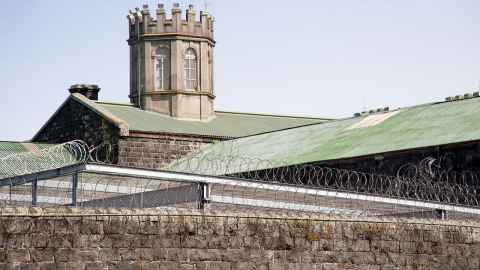Prisoner voting a ‘moment’ in NZ constitutional history
14 August 2019
Opinion: Dr Edward Willis calls on the Government to stop complicity in unconstitutional racist legislation and 'in this moment' lift the ban on prisoner voting.

When I teach constitutional law, I work hard to impress upon my students that my topic is mostly about process. It’s about gradual developments. The moments when big change happens all at once and constitutional fault lines seem to realign themselves before your eyes are exciting but rare.
Instead, you watch the slow but steady evolution of lines of precedent, the incremental changes, the trends. And then you follow them doggedly. Where do they take us? How are things improving? What do we still need to work on? As we try to stitch together a coherent legal whole from these individual pieces, the direction of travel means as much to the constitutional lawyer as where we are right now.
In some respects, the current public attention on the prison voting ban, and the important calls to repeal that ban, is an example of the importance of this kind of constitutional process.
When the National Party first supported legislation removing the right of all prisoners to vote in 2010, the Attorney-General warned that the proposed legislation was inconsistent with the New Zealand Bill of Rights Act. It served no rational purpose to deprive all prisoners of the right to vote, he argued. That argument wasn’t enough to stop the legislation, but it was the start of a trend that ensured the ban could only ever sit uncomfortably with our constitutional arrangements.
The trend continued when the High Court held the legislation was inconsistent with the New Zealand Bill of Rights Act, for much the same reasons. But the High Court went further than the Attorney-General, and officially declared that the prisoner voting ban could not be consistent with the responsible recognition of the right to vote. It sent a strong message to the Government and Parliament that the legislation should be reconsidered. But this was a novel judicial finding, and perhaps the prevailing trend was still developing, still gathering steam. So the Government appealed. But both the Court of Appeal and the Supreme Court supported the High Court decision. And on each occasion the trend pushing for repeal of the ban grew stronger
The prisoner voting ban disproportionately affects Māori and so needs to be repealed for that reason as well. It is not only unconstitutional – it is officially racist.
And finally this week the Waitangi Tribunal has added its voice to the trend. The prisoner voting ban disproportionately affects Māori and so needs to be repealed for that reason as well. It is not only unconstitutional – it is officially racist. Even if there were any tenuous reasons remaining to ban prisoners from voting, which there categorically are not, they cannot credibly survive this kind of criticism.
This trend matters. Some will say it doesn’t compel the Government to take any action, and they are right. The prison voting ban still hasn’t been repealed. But the pressure of these authoritative decisions casts a long shadow over any Government that claims to respect our fundamental rights. It can’t make that claim in any genuine sense until the ban is repealed. And it knows it.
But the thing I don’t need to teach my students is this: moments also matter. Decisions must be taken; consequences realised. Constitutional change starts somewhere. It also ends somewhere. It starts and ends when people decide. That moment of decision – that moment of courage, of kindness – that moment to choose to bring to an end something that is unprincipled, unjust and unconstitutional – that moment also matters. It matters a great deal.
Our current Labour-led Government has been presented with a moment, if it chooses to take it. It could introduce legislation repealing the ban on prisoner voting tomorrow. It could make the issue a priority. It could make a stand. It could take this moment in our constitutional history and make it count.
The trend lines are clear. The moral bearing is certain. There is a right side and a wrong side of history, and there is no doubt which is which. These factors give rise to a moment. In this moment, does our Government have the courage and the kindness to refuse to remain complicit?
Moments like these matter a great deal. So I say to our Prime Minister, to our Minister of Justice and to our Government that this is the moment. This is your moment. This is when it counts.
Dr Edward Willis is a lecturer in the Faculty of Law.
This article reflects the opinion of the author and not necessarily the views of the University of Auckland.
Used with permission from Newsroom Prisoner voting a ‘moment’ in NZ constitutional history on 14 August 2019.
Media queries
Alison Sims | Research Communications Editor
DDI 09 923 4953
Mob 021 249 0089
Email alison.sims@auckland.ac.nz